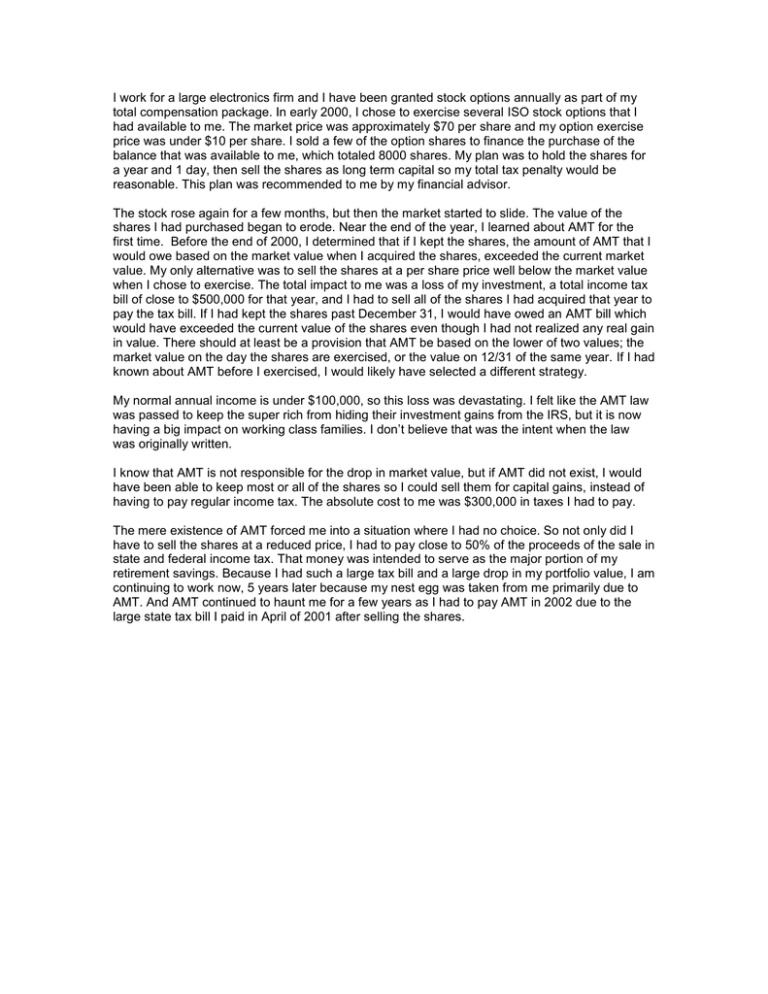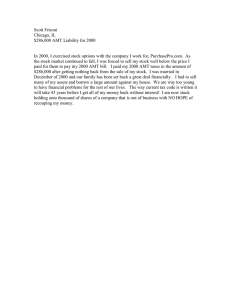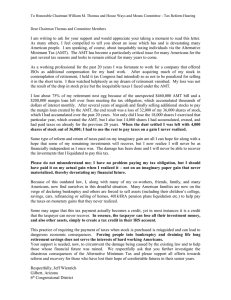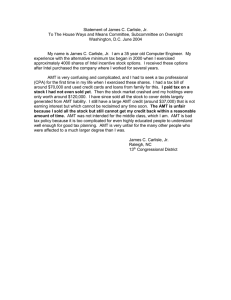I work for a large electronics firm and I have... total compensation package. In early 2000, I chose to exercise...
advertisement

I work for a large electronics firm and I have been granted stock options annually as part of my total compensation package. In early 2000, I chose to exercise several ISO stock options that I had available to me. The market price was approximately $70 per share and my option exercise price was under $10 per share. I sold a few of the option shares to finance the purchase of the balance that was available to me, which totaled 8000 shares. My plan was to hold the shares for a year and 1 day, then sell the shares as long term capital so my total tax penalty would be reasonable. This plan was recommended to me by my financial advisor. The stock rose again for a few months, but then the market started to slide. The value of the shares I had purchased began to erode. Near the end of the year, I learned about AMT for the first time. Before the end of 2000, I determined that if I kept the shares, the amount of AMT that I would owe based on the market value when I acquired the shares, exceeded the current market value. My only alternative was to sell the shares at a per share price well below the market value when I chose to exercise. The total impact to me was a loss of my investment, a total income tax bill of close to $500,000 for that year, and I had to sell all of the shares I had acquired that year to pay the tax bill. If I had kept the shares past December 31, I would have owed an AMT bill which would have exceeded the current value of the shares even though I had not realized any real gain in value. There should at least be a provision that AMT be based on the lower of two values; the market value on the day the shares are exercised, or the value on 12/31 of the same year. If I had known about AMT before I exercised, I would likely have selected a different strategy. My normal annual income is under $100,000, so this loss was devastating. I felt like the AMT law was passed to keep the super rich from hiding their investment gains from the IRS, but it is now having a big impact on working class families. I don’t believe that was the intent when the law was originally written. I know that AMT is not responsible for the drop in market value, but if AMT did not exist, I would have been able to keep most or all of the shares so I could sell them for capital gains, instead of having to pay regular income tax. The absolute cost to me was $300,000 in taxes I had to pay. The mere existence of AMT forced me into a situation where I had no choice. So not only did I have to sell the shares at a reduced price, I had to pay close to 50% of the proceeds of the sale in state and federal income tax. That money was intended to serve as the major portion of my retirement savings. Because I had such a large tax bill and a large drop in my portfolio value, I am continuing to work now, 5 years later because my nest egg was taken from me primarily due to AMT. And AMT continued to haunt me for a few years as I had to pay AMT in 2002 due to the large state tax bill I paid in April of 2001 after selling the shares.


